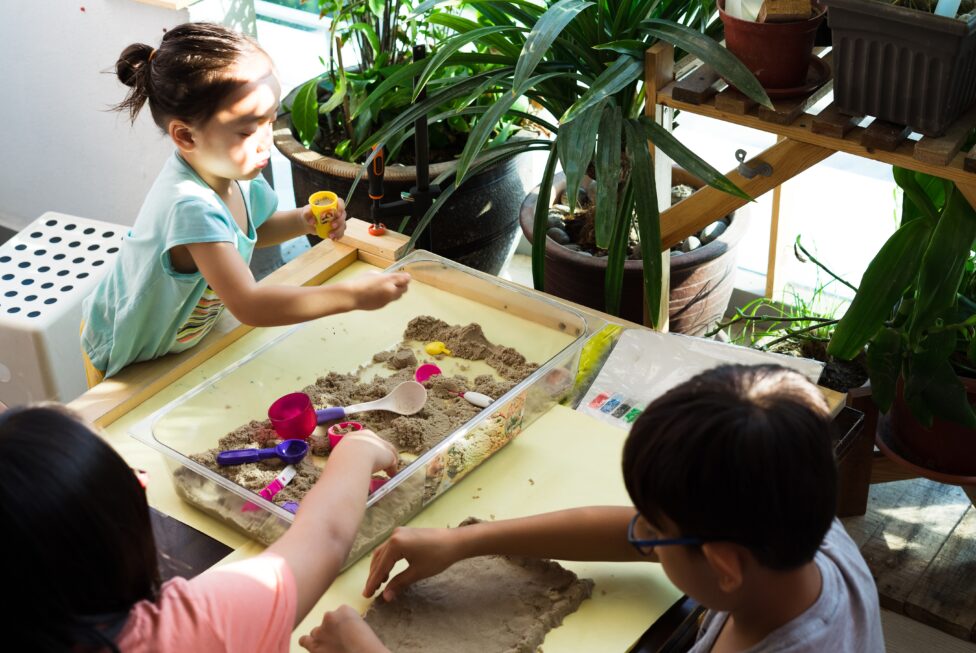The Power of Play: How Play Therapy Benefits Children’s Mental Health.
In the realm of childhood, play is a universal language. It’s how children explore their world, express their emotions, and make sense of complex feelings. However, for some children, navigating the path of emotional well-being can be challenging. This is where play therapy, a unique and powerful therapeutic approach, steps in. In this article, we’ll delve into the world of play therapy and discover its profound impact on children’s mental health and overall development and the effectiveness of healing through play.
Unpacking Play Therapy:
Play therapy is a specialized form of psychotherapy that utilizes play as a means of communication and healing for children. It provides a safe and supportive environment where children can express their thoughts, emotions, and experiences through play activities rather than traditional verbal communication.
The Therapeutic Playroom: A Safe Haven:
One of the fundamental aspects of play therapy is the creation of a therapeutic playroom. This space is intentionally designed to be warm, inviting, and filled with an array of toys and materials. Within this setting, children are encouraged to explore, create, and, most importantly, play.
The Benefits of Play Therapy:
Emotional Expression:
Children often find it challenging to articulate their feelings with words. Play therapy offers them a non-threatening medium to express complex emotions, fears, and anxieties.
Problem-Solving:
Through play, children can work through issues and conflicts, learning to make choices and solve problems independently.
Play Therapy Helps Building Resilience:
Play therapy promotes emotional resilience by helping children develop coping strategies and adapt to life’s challenges.
Enhanced Communication:
Over time, children become more comfortable expressing themselves verbally, leading to improved communication with both peers and adults.
Empowerment:
Play therapy empowers children to regain a sense of control over their lives, particularly in situations where they may have felt powerless.
The Therapist’s Role in Play Therapy:
Trained play therapists play a crucial role in facilitating the healing process. They observe children’s play and use it as a window into their emotional world. Some common techniques include:
Child-Centered Approach:
Therapists follow the child’s lead, allowing them to choose the toys and activities that resonate with their experiences.
Establishing Trust:
Building a strong therapeutic relationship is foundational. Trust is cultivated through empathetic listening and providing a safe, non-judgmental space.
Reflective Responses:
Therapists reflect on the child’s play, providing opportunities for the child to explore their emotions further.
Setting Boundaries:
While play therapy encourages freedom, it also maintains appropriate boundaries to ensure safety and structure.
Who Can Benefit from Play Therapy?
Play therapy is a versatile approach suitable for children facing a wide range of challenges, including:
Behavioural Issues: Children with disruptive behaviour patterns can benefit from play therapy to explore the underlying causes of their actions.
Trauma: Play therapy can help children process traumatic experiences in a safe and controlled manner.
Anxiety and Depression: Children experiencing anxiety or depression can find relief through play therapy as they learn to manage their emotions.
Grief and Loss: Play therapy provides a space for children to cope with the emotions associated with loss and grief.
Developmental Disorders: Play therapy can be adapted to meet the needs of children with developmental disorders, helping them reach their full potential.
Parental Involvement:
In many cases, parents or caregivers are involved in the play therapy process. This collaboration allows parents to better understand their child’s emotional world and provides them with tools to support their child’s growth and healing outside of therapy sessions.
Conclusion: The Magic of Play in Healing
Play therapy is more than just child’s play; it’s a potent vehicle for healing and personal growth. Through play, children can confront their fears, express their feelings, and develop essential life skills. As we witness the transformative power of play therapy, we realize that sometimes, the most profound healing happens when we simply allow children to be children.



